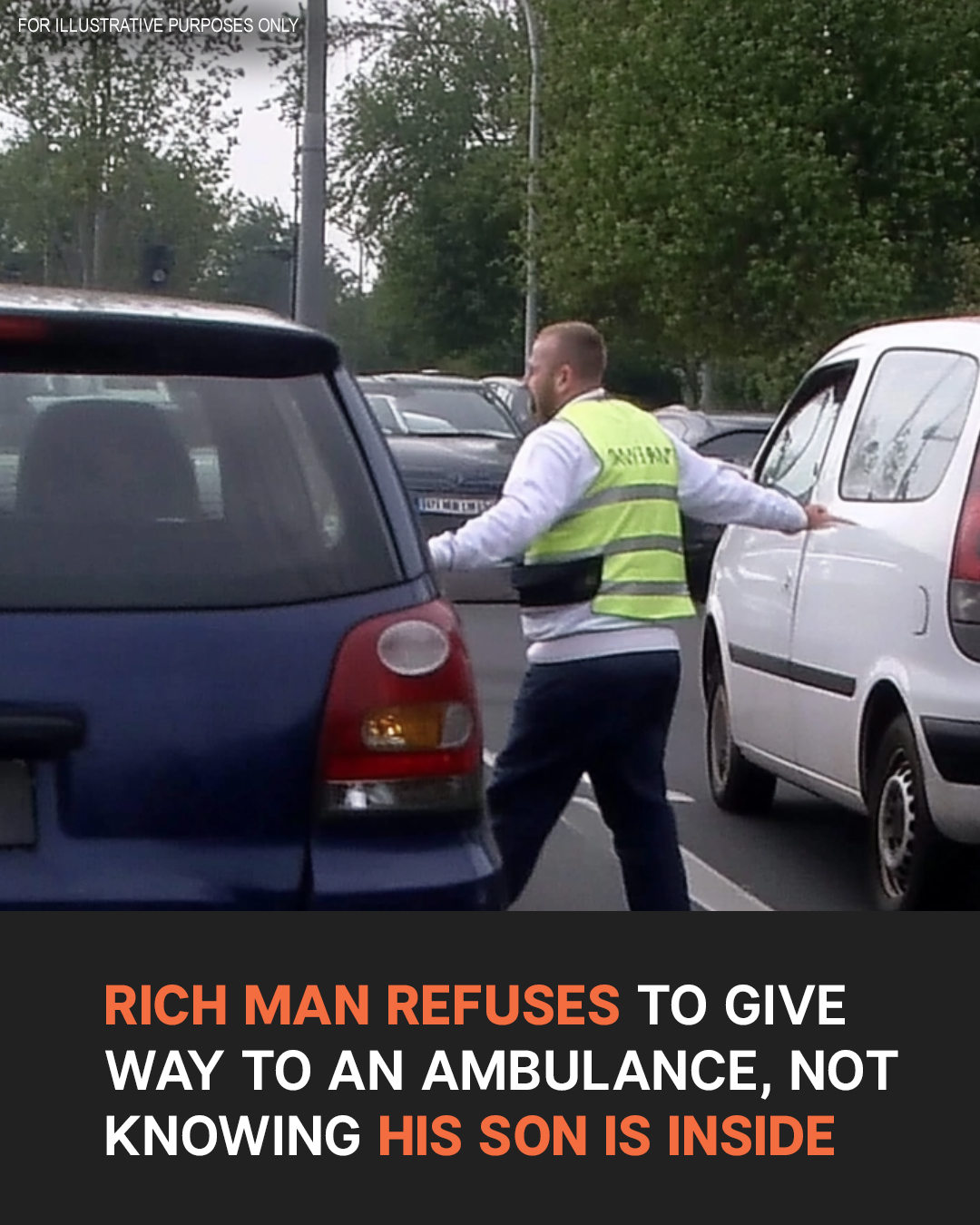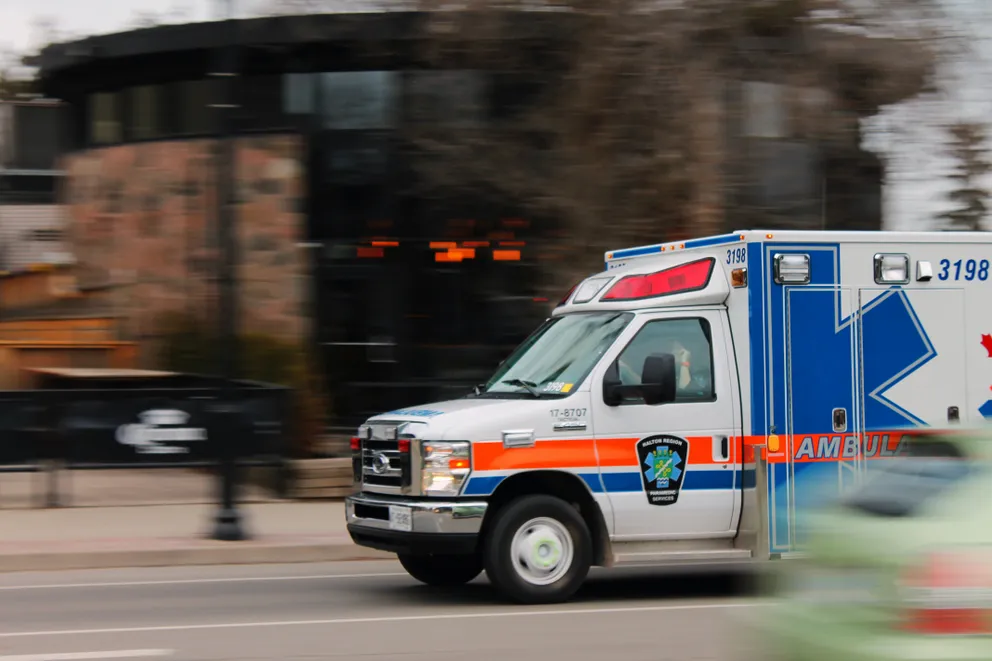
After a traumatic childhood event, Taylor grew to distrust doctors so deeply that he once refused to move his car for an ambulance in a traffic jam. His stubbornness nearly cost him everything.
After dinner, as the kids returned to their rooms, Polly told Taylor she wanted to hire a nanny because managing the house and their three children had become overwhelming.
“A nanny? They’re so expensive, and it’s unnecessary,” Taylor dismissed.
“Please, Taylor. I can’t manage everything alone anymore, and we can afford it,” Polly pleaded.
“Just because we have money doesn’t mean we should waste it on things we don’t need,” Taylor retorted. “My mother raised me alone after my father left, and look at me now—a millionaire. They don’t need a nanny. Just make them behave after school.”
Taylor didn’t believe Polly’s struggles were genuine. He thought her job, writing from home, was not as demanding as his corporate responsibilities. He was certain his refusal was justified.

Days later, Polly fainted in the living room. Their eldest son, Mark, called Taylor at work.
“Should I call 911?” Mark asked.
“No! Absolutely not,” Taylor ordered. “Call Mara, the neighbor. Her number is by the phone. I’ll be there soon.”
Mara, a kind nurse working night shifts, was barely trusted by Taylor, but he saw her as a better option than any doctor. When Taylor arrived home, Polly was awake, and Mara was checking her while the kids stood by worriedly.
“So, how is she?” Taylor asked Mara.
“Polly should see a doctor. Fainting isn’t normal,” Mara advised.
“We’re not young. She’s 35, and I’m 38,” Taylor shrugged.
“That’s still young. She needs blood work and a check-up,” Mara insisted.
“No doctors,” Taylor refused. “My mother died because a doctor didn’t diagnose her cancer in time. I had to live with my abusive father. We even had home births because of that. Our kids are fine.”

Mara sighed, agreeing to just the blood tests. Polly was found to have mild anemia, which improved with medication. Despite this, Taylor still refused to hire a nanny.
One morning, Taylor hurried out, late for a crucial meeting. A massive traffic jam delayed him further. Growing impatient, he heard an ambulance behind him, but refused to move his car, convinced they were faking the emergency to bypass traffic.
The ambulance driver, an older man, approached. “Sir, please move! There’s a kid needing urgent care.”
“No, you’re lying. Even if you’re not, doctors won’t help. I’m not moving,” Taylor replied coldly.
“This is illegal!” the driver protested.
“Then sue me or call the cops,” Taylor shrugged.
The ambulance driver eventually maneuvered through the sidewalk as other cars moved aside. Taylor, still stubborn, finally reached his office but was interrupted by repeated calls from Polly, which he ignored until seeing a message: “Mark is in the hospital! Call me ASAP!”
Terrified, Taylor rushed to the hospital. Polly, holding their frightened younger children, explained that Mark had a severe head injury and was in surgery.

Hours later, a surgeon emerged, assuring them that Mark was stable but emphasizing the importance of his timely arrival. Taylor was stunned, realizing his earlier refusal to move for the ambulance could have cost his son’s life.
Polly later revealed that their ambulance driver had faced an obstinate motorist but managed to get them to the hospital in time. Taylor, overwhelmed with guilt, admitted his mistake and vowed never to repeat it.
Mark recovered, and Taylor sought out the ambulance driver, James, to apologize profusely. Moved by Taylor’s remorse, James accepted his apology. Learning that James needed financial support for his wife’s surgery, Taylor offered him a job as a family driver with a better salary.

James became invaluable, running errands, helping with the children, and driving Taylor. After a few months, James had enough to fund his wife Helena’s surgery. The experience taught Taylor the importance of using his wealth for his family’s happiness and well-being. His distrust of doctors diminished as he saw their dedication in saving Mark.
Taylor then became a hospital benefactor, providing grants for children from low-income families to get surgeries. James and Helena continued working for his family, beloved by the kids. Polly thrived at work, free from health worries.
From then on, Taylor was always the first to pull over for an ambulance, a mistake he swore never to repeat.






